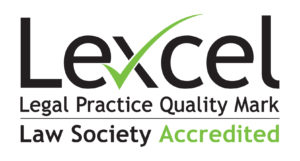Holiday Pay and Employment Status Disputes: Case Update
A recent decision from the European Court of Justice (the “ECJ”) on holiday pay has major implications in cases where worker status is disputed, and with so much debate around employment status in the ‘gig-economy’, this decision could cause havoc for the dental industry.
In our March Employment Update, we reported on the Pimlico Plumbers Ltd & Anor v Gary Smith (the “Pimlico case”) case, which demonstrated the developments on employment status, which could mean that Associate Dentists may no longer be accepted by HMRC as self-employed. Since this time, there has been further movement in both this case and the Uber BV v Aslam (the “Uber case”) case. The Pimlico case is due to be heard in the Supreme Court in February, which will give the Supreme Court chance to review worker status and, although Uber’s request to leapfrog their appeal to the Supreme Court was denied, it should be heard in the Court of Appeal some time next year. Both of these cases should help to shed some more light on where worker status in the ‘gig-economy’ and employment status in general will head. With this in mind, the ECJ’s decision in the case of King v Sash Window Workshop Limited may be cause for worry, as if self-employed individuals are in fact held to be workers and have been prevented from taking, or not had the opportunity to take, their paid holiday, then they must be able to carry it over. This means that employers may be liable for thousands for backdated holiday pay claims.
In this case, Mr King worked as a salesman for Sash Window Workshop Limited on a commission-only basis and received no paid leave as they considered him to be self‑employed. When he left he claimed unlawful deductions of wages in relation to unpaid holiday pay for leave accrued but not taken. The Employment Tribunal held that Mr King was a worker and that he was therefore entitled to paid annual leave. This was then appealed to the Employment Appeal Tribunal (the “EAT”) and then to the Court of Appeal, who referred it to the ECJ to answer a number of queries. The ECJ confirmed as follows:
- The individual does not have to have taken the leave to be entitled to payment;
- No time limit applies to the carry-over period; and
- The individual does not have to show that they requested paid annual leave over the years in these circumstances.
For those of you that are hoping that you can rely on ignorance an individual’s correct employment status, I’m afraid that the ECJ also held that this is no defence for not paying holiday pay. Although it is yet to be seen, the decision in this case may also have wider implications on holiday pay which is actually taken, as set out in Fulton v Bear Scotland Ltd. This case therefore has significant impact in the gig-economy and could also heavily impact on the dental industry.
If you don’t want to be liable for employment rights, or contrastingly you want to be able to rely on them, then you need to seek advice from a dentally aware firm as soon as possible. If you would like us to review your self-employed agreements and provide advice on whether they match the reality of the situation, then please do not hesitate to get in touch with our Employment & HR specialists here at FTA Law.
The team at FTA Law provides advice to clients across the commercial and healthcare sectors with many of our instructions coming from referrals from long standing clients and industry contacts.
Contact usWe understand that price is a big concern for our clients and we always aim to offer a fixed fee for our services.














